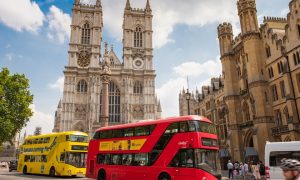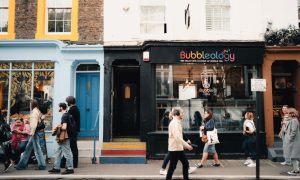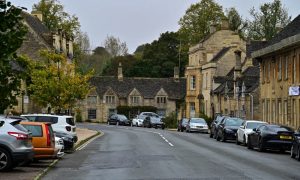Immigration to the UKIt sounds decent and attractive: free healthcare, quality education, British culture, strong passport, stable benefits ...... But is it really "worth it"?
The biggest question many people ask before making a decision is not "can I move", but "is it worth it". Are living expenses too high?immigrantsHow happy is the aftermath? Will it be an uncomfortable place to live? Is the UK an "immigrant's paradise" or a "reality anxiety field"? This article will reveal the real life and hidden costs of immigrating to the UK in 2025, and help you make the most rational judgment.
First, the real cost of living after immigrating to the UK is exposed
Although the UK is a high-income country, its high cost of living should not be ignored, especially in London and the developed areas of the South. Below is an overview of the average cost of living in 2025 (in London, for example, in pounds sterling per month):
| sports event | single person | family of three |
|---|---|---|
| Rent (1 room) | £1,600 | £2,200+ |
| hydroelectric power grid gas | £200 | £300 |
| Groceries | £300 | £600 |
| Transportation commuting (metro) | £180 | £350 |
| cellular broadband | £50 | £80 |
| Entertainment/consumption | £200 | £400 |
| Education costs (e.g. private) | – | £1,200+/month (optional) |
Total:
-
Single person basic living:From £2,500/month
-
Family life:Ranging from £3,800-5,000/month
✅ The cost of living can fall by 15%-30% if you live in a non-London city such as Manchester, Birmingham or Glasgow.
II. Happiness of life after migration: the gap between reality and ideals?
✅ Strengths Highlights:
-
Free health care (NHS): It costs nothing to see a doctor, and is especially suitable for people with children or chronic illnesses;
-
Quality of educational resources: Public schools are free, private school options are plentiful, and there is a dense concentration of world-renowned schools;
-
Strong social welfare protection: Low-income groups can apply for childcare subsidies, housing grants, free lunches, etc;
-
Livable living environment: Clean air, lots of green space, quiet neighborhoods, and a high safety index;
-
Free cultural atmosphere: Encourages diversity, respects personal choices, LGBTQ friendly and less discriminatory.
❌ Potential challenges:
-
Pressure on rents and high thresholds for buying a home.;
-
Wet, cold and dreary winters affect moods.;
-
Inefficient public services, e.g. long NHS waiting times.;
-
Longer linguistic and cultural adjustment period and easy social isolation in the early stages.;
-
Difficulty in making a rapid "class leap" and the need for long-term career building and integration
III. Comparison of differences in the experience of mainstream migrant types
| Visa Type | Initial Experience | Long-term development space |
|---|---|---|
| skilled migrant(Skilled Worker) | Have a job and an income, start fast, adapt quickly | Stable and growing, 5 years to permanent residence |
| business migrant(Innovator Founder) | Initial challenges, need to be self-financing, entrepreneurial pressure | High return on assets and freedom after success |
| Spouse Immigration | Stable family, adequate emotional support, fast language adaptation | Restricted development without stable employment |
| Student to PSW | Low-cost starting point, experiential immigration, lots of room for exploration | Success in the UK relies on employment, with no fixed pathway |
| investment immigration/High Net Worth Individuals | High quality of life without worries and freedom | Elite Pathway, no longer open to mainstream fast track |
IV. Evaluation of real immigrants: 3 typical cases sharing
🎯 Case 1: IT engineer Mr. Lee (skilled migrant)
"Came to three years, from programmer to senior developer, annual salary from £ 40K to £ 70K, although London life is expensive, but with the technology to eat is very at ease. Life is stable, children go to school for free, and my wife is looking for a job. The only thing I'm not used to is the winter weather is too depressing."

🎯 Case 2: Ms. Lin, Entrepreneur (Innovation Visa)
"Opened a cultural and creative brand store, almost closed during the epidemic, now a little bit of upturn. The UK is inefficient and expensive, but the culture is inclusive and there is room to play. The hard work is real and the sense of achievement is strong."
🎯 Case 3: Newlywed Mrs. Wang (Spouse Signature)
"My husband is British, so I had a hard time getting through the language barrier after marrying him, and I hit a lot of walls in my search for a job. Then he got a qualification in Early Childhood Education and now he works in a local kindergarten, not earning much but living a smooth life. The greatest happiness is freedom."
V. Conclusion:Immigration to the UKIt's about buying "lifestyle", not "shortcuts".
The UK is not a "gold rush", it's aProviding a high quality but not easy lifeThe country. What you are buying is a ticket to middle class life, not an overnight pass. To be "worthy", you need to be:
-
There is some financial preparation;
-
Have a skill or be able to adapt to the job market;
-
There is tolerance and acceptance of cultural differences;
-
Have long term planning with clear goals.
✅ Is it worth it to emigrate to the UK? The answer is not absolute, but "depends on what you want".







